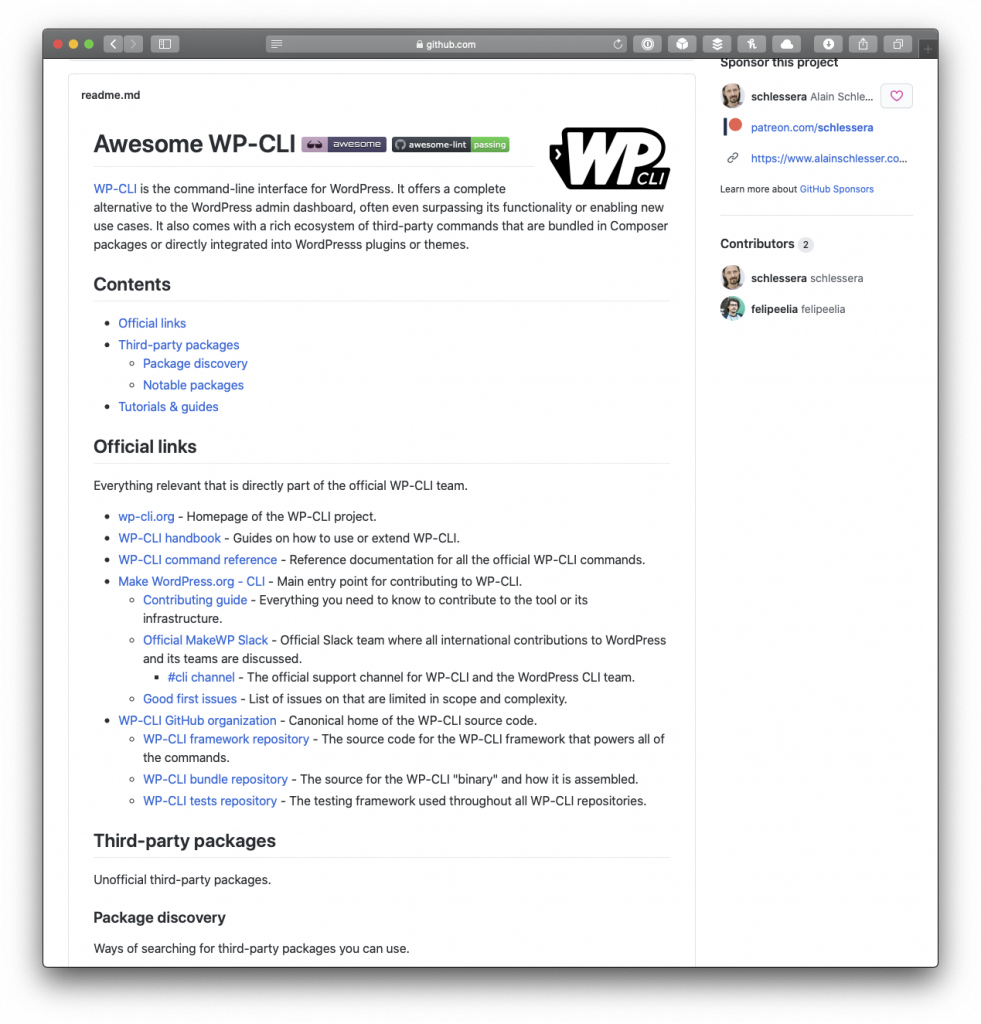One of the more challenging aspects of working with WordPress is working the fragmented nature of documentation. And I don’t necessarily mean the Codex nor do I mean the Developer Resources.
But I mean the fact that there’s a ton of information spread across blogs (mine not exempt), subreddits, questions and answers on Stack Exchange, and shares via Twitter, and so on.
I’m not making a case that this is inherently bad or good but I am making the case that when given the opportunity to provide a central repository of information for a feature, set of APIs, or tools that it can be extremely helpful especially if it’s written an maintained by the author of something like one of the aforementioned issues.
Case in point: WP-CLI and Alain Schlesser.
Awesome WP-CLI
I’d venture to say that most people who are making a career of building complex solutions with WordPress are familiar with WP-CLI (or have at least heard of it). And if you’re not, the name says it all:
WP-CLI is the command-line interface for WordPress. It offers a WP-CLI is the command-line interface for WordPress. You can update plugins, configure multisite installations and much more, without using a web browser.
WP-CLI.org
Simply put, it’s a way for for us to work with WordPress from the command-line which is often faster. But just like so many other things in WordPress, it can be hard to find a definitive resource for us to look to whenever we’re working with WP-CLI because so much information is spread across the web.
However Alain, current maintainer of WP-CLI, has put together a repository that includes everything relevant to the WP-CLI project.

This includes things such as:
- The handbook,
- Reference documentation,
- Working with WP-CLI,
- Contributing to the project,
- the Slack channel for chatting with those who use and work with it,
- the source code for it,
- And more.
So if you find yourself looking for the place to start working with WP-CLI and you’re looking for all of the tangential information around it, bookmark the Awesome WP-CLI repository in GitHub and use that as the primary reference point.
At the time of this post, there’s no place better.

